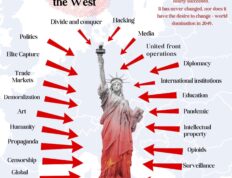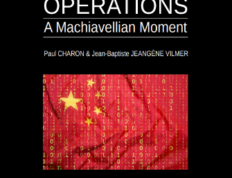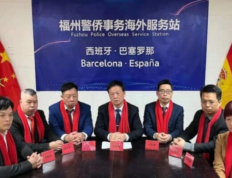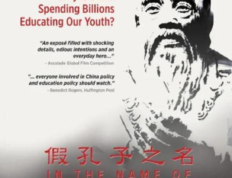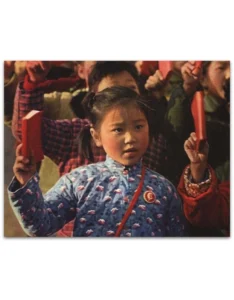 Since the founding of the People’s Republic of China (PRC) by the Chinese Communist Party (CCP) in 1949, the CCP has faced ongoing challenges to its legitimacy, particularly given the lack of a legal transfer of power from the Republic of China (ROC). To stabilize its regime, the CCP has employed a range of tactics to secure popular support, including coercion, inducement, deception, ideological manipulation, brainwashing, and mind control. Over the decades, the CCP has adapted its strategies to ensure its survival, transitioning from Mao-era political campaigns to Deng Xiaoping’s economic reforms, and more recently, fostering nationalist sentiment and xenophobic propaganda. This paper explores the various factors that have led the Chinese people to support the CCP. It is crucial to be aware that the CCP operates differently from typical political parties in Western democracies. The support for the CCP among the Chinese people is never a result of free will or rational choice; rather, they have never had the freedom to choose an alternative ruling party. Only by helping the Chinese people and the global community recognize the crimes and the evil nature of the CCP, can we truly help the Chinese people, and also of course, ourselves.
Since the founding of the People’s Republic of China (PRC) by the Chinese Communist Party (CCP) in 1949, the CCP has faced ongoing challenges to its legitimacy, particularly given the lack of a legal transfer of power from the Republic of China (ROC). To stabilize its regime, the CCP has employed a range of tactics to secure popular support, including coercion, inducement, deception, ideological manipulation, brainwashing, and mind control. Over the decades, the CCP has adapted its strategies to ensure its survival, transitioning from Mao-era political campaigns to Deng Xiaoping’s economic reforms, and more recently, fostering nationalist sentiment and xenophobic propaganda. This paper explores the various factors that have led the Chinese people to support the CCP. It is crucial to be aware that the CCP operates differently from typical political parties in Western democracies. The support for the CCP among the Chinese people is never a result of free will or rational choice; rather, they have never had the freedom to choose an alternative ruling party. Only by helping the Chinese people and the global community recognize the crimes and the evil nature of the CCP, can we truly help the Chinese people, and also of course, ourselves.
From Fanatical Movements to Economic Reforms: The Historical Background of the CCP’s Legitimacy Crisis
Since the founding of the PRC, legitimacy has been a persistent concern for the CCP’s leadership. On 12 February 1912, the Empress Dowager Longyu, on behalf of the six-year-old Xuantong Emperor, issued the Imperial Edict of the Abdication of the Qing Emperor. This official decree ended the over 200-year rule of the Qing Dynasty, marking the conclusion of Chinese imperial rule. The edict established the ROC as the successor state to the Qing Dynasty, providing the legal basis for the ROC to inherit all Qing territories. However, the PRC, established by the CCP, never secured a similar legal foundation. Consequently, the CCP has always viewed the ROC (Taiwan) as a significant challenge, as its existence undermines the perceived legitimacy of the CCP regime.
In the absence of a legal basis for a legitimate transfer of power, maintaining regime stability has relied heavily on popular support. During Mao’s era, this support was primarily maintained through political movements resembling fanatical cults, the deification of leaders, and propaganda. By the 1970s, however, these intense social movements had led to a severe economic collapse and significant harm to people’s livelihoods, threatening the stability of the CCP regime. The CCP had to face and deal with the first major legitimacy crisis since it established its regime.
To safeguard the party and maintain its rule, the CCP initiated economic reforms in the late 1970s, allowing greater economic freedom. However, its commitment to communist ideology in the political realm remained unchanged. The economic reforms were fundamentally aimed at ensuring the CCP’s survival rather than genuinely improving people’s lives or implementing comprehensive economic and political reforms.
Following the implementation of economic reforms, China experienced a brief period of relative openness in the ideological and cultural fields. The public’s calls for political reform grew louder. However, these signs of potential change were violently suppressed in the Tiananmen Square Massacre of 1989. The large-scale protests of that year did not seek to overthrow the CCP but rather hoped for change within the system. The CCP’s decision to suppress the protests marked a turning point in modern Chinese history.
Post-Tiananmen China resembled Czechoslovakia during the 1970s’ normalization period after the suppression of the Prague Spring. In Czechoslovakia, public apathy prevailed as people focused on personal and family matters, participating in leisure activities while avoiding political engagement. This period of “Goulash Communism” involved the regime maintaining public silence through modest material benefits.
Similarly, after the Tiananmen Massacre, China’s economy continued to grow rapidly under economic reforms, but public confidence in protests waned. Under the threat of state violence, people avoided criticizing the regime, focusing instead on material gains. The CCP effectively purchased public silence with improved living standards, setting the tone for more than 30 years after 1989.
Through Deng Xiaoping’s economic reforms, the CCP successfully shifted the basis of its self-proclaimed legitimacy from quasi-religious fanaticism to economic growth, thereby overcoming its first major legitimacy crisis.
Brainwashing and Control Behind Economic Achievements
Over more than 40 years of economic development, the CCP has amassed the resources to whitewash its image and brainwash the populace. The Chinese people are hardworking, and with Western capital and technical support, and minimal government interference, the economy would naturally thrive. However, the CCP has ignored the efforts of the Chinese people, the support of Western capital, and the benefits of globalization, instead taking full credit for the country’s economic progress. It is important to note that China’s extreme poverty before the economic reforms was exactly caused by the CCP’s own destructive policies, including the eradication of private property and a series of fanatical political movements. After the reforms, the CCP repositioned itself as the “savior” of the nation, demanding gratitude from the people for the very progress it had previously obstructed.
To consolidate and maintain its new legitimacy based on economic growth, the CCP has adopted a short-sighted “kill the goose that lays the golden eggs” development model. This approach includes the seizure and theft of intellectual property, denial of legal rights to workers, use of slave labor in prisons and labor camps, disregard for environmental pollution, unruly trade policies, and undermining the international economic order. Although such an unsustainable model has stimulated short-term economic growth, it has also generated numerous domestic conflicts and created adversaries on the international stage.
Relying on its self-proclaimed legitimacy built on economic growth, the CCP has intensified its control over the populace. On one hand, it has attempted to convince people that economic reforms are genuinely for their benefit and that the economic achievements of the past few decades would not have been possible without the CCP. On the other hand, it has leveraged its economic strength to threaten, coerce, and entice the people with various benefits. In this environment, wealthy families and the middle class prefer to avoid criticizing the CCP and remain silent to protect their material interests, while poor families are given false hope of upward mobility. Young people migrate to cities to supplement their family incomes, but they are often exploited and unable to achieve true prosperity. They struggle for survival and lack the time or energy to criticize the CCP, and any dissent could further jeopardize their already fragile livelihoods.
Behind the Growing Number of Party Members: Coercion and Inducement
As of December 31, 2022, the Communist Party of China had 98 million members, a number that continues to grow as members have little freedom to leave the party. Typically, only the party can expel its members, while members cannot resign from the party. Once individuals become party members, they are compelled to remain on board and are not permitted to leave.
Furthermore, the CCP has linked party membership to various benefits. It is widely acknowledged in China that young people join the party not out of ideological belief, but for personal interests. Party membership offers young people advantages in job hunting, passing civil service examinations, and gaining entry into state-owned enterprises.
Ideological Indoctrination
In recent years, faced with China’s economic recession and a deteriorating international diplomatic environment, the top leaders of the Communist Party of China (CCP) have not focused on finding effective response plans. Instead, they have sought to consolidate power and stabilize their positions by employing Mao-era political brainwashing and speech control methods. Political indoctrination has once again become particularly prominent throughout society. In many state-owned enterprises and institutions, Communist Party members, and even some non-members, are required to attend daily study sessions on Xi Jinping’s ideology. These sessions include self-criticisms, often targeting pro-Western economic ideas, and sharing personal reflections. The goal is to make Xi Jinping Thought “enter the brain, the heart, and the soul.”
Although political indoctrination has become particularly prominent in recent years, the CCP has consistently engaged in brainwashing since its inception. During the Mao era, mainland China established an “automatic brainwashing mechanism” characterized by the backing of violence, reshaping of values and ways of thinking, comprehensive transformation of the spiritual world, and complete monopoly of information sources. The end of the Cultural Revolution, the discrediting of Mao’s theories, the “June 4th” crackdown, the collapse of the Soviet Union, and Deng Xiaoping’s embrace of capitalist globalization to maintain CCP rule made the Mao-era brainwashing mechanisms less straightforward and effective. Consequently, the CCP shifted to focusing on economic development and social stability as the main axes, using material interests to preoccupy the Chinese populace with making money and satisfying material needs, thereby controlling their minds.
The CCP employs different brainwashing strategies across various social fields. In the education sector, from elementary school to university, ideological and political education is a compulsory course for students. Ideological indoctrination begins as early as kindergarten, embedding CCP ideology and ways of thinking into the subconscious of children. Over several generations, this approach aims to thoroughly control social thought. Last year, the Central Propaganda Department and the Ministry of Education jointly launched a textbook on Xi Jinping Thought for college students. According to CCTV, the national television broadcaster of China, the objective of national education is to ensure that Xi Jinping Thought “enters the classroom, the textbook, and the brain.”
For specific persecuted religious groups, the CCP uses the “thought transformation” model, akin to concentration camps, to forcibly indoctrinate these groups. This is the case for Falun Gong practitioners and Uyghurs in Xinjiang. These brainwashing classes operate as extralegal black prisons. For example, Falun Gong practitioners confined in these classes are exposed to defamatory information about their beliefs and subjected to mental torture. CCP experts have even concluded that sleep deprivation is the most effective form of brainwashing. Those who resist transformation would face severe punishments, including torture, forced labor, and imprisonment.
Confusing the CCP and China
The CCP has worked tirelessly to make the people under its rule believe that being anti-CCP is synonymous with being unpatriotic. Official media frequently uses terms like “the party and the country,” “the party and the government,” “the party and the people,” and “the party and the masses,” suggesting that the party not only represents the nation but is also greater than the nation. In the realms of education and propaganda, the CCP equates the Communist Party and the country to “mothers,” even promoting the idea that “fathers and mothers are not as dear as the party.” Through this illogical analogy, the CCP instills the notion that “no matter what mistakes the mother makes, she is still a mother, and which child will remember the mother’s mistakes?” This narrative makes people see the CCP as their provider and protector, controlling every aspect of life from birth, education, employment, production, to retirement. It perpetuates the belief that the CCP is indispensable to China’s 5,000-year civilization, fostering a psychological and physiological dependence on the party. Consequently, when people hear anti-CCP criticism, they perceive it as anti-China. This is why the CCP accuses Western governments and politicians of being “anti-China” and “insulting China” whenever they criticize the CCP. This strategy causes the Chinese people to mistakenly view Western support for human rights and their well-being as actions by “anti-China forces,” thereby aligning with the CCP’s propaganda.
Inciting Nationalist Sentiment and Promoting Hatred
In the historical narrative dominated by the CCP, the “Century of Humiliation” is particularly emphasized. This framework, used by mainstream Chinese scholars and politicians, describes China’s history from the mid-nineteenth century to the mid-twentieth century. The Century of Humiliation began with the First Opium War in 1840 and concluded with the end of the Anti-Japanese War in the 1940s and the founding of the People’s Republic of China. The CCP attributes the “Century of Humiliation” to the bullying of China by Western powers, using it as the historical basis for its propaganda against the West. In the CCP’s portrayal, today’s developed countries, such as the United States, Japan, and European nations, are essentially unchanged from a hundred years ago; they continue to bully and suppress China, viewing its rise as a significant threat. The CCP asserts that modern China is still surrounded by powerful enemies, and only it can lead China to stand firm against these adversaries.
Following the Mao era, the communist ideal was largely discredited, and the CCP increasingly turned to nationalism and patriotism to mobilize and incite the Chinese populace. The CCP identified enemies both domestically and internationally, promoting these adversaries as enemies of the Chinese people. This tactic rallied nationalistic fervor and encouraged the populace to fight under the banner of nationalism.
This nationalist propaganda is intertwined with the CCP’s strategy of conflating the party with China itself. As a result, the CCP labels all domestic and international criticism of the party as anti-China and humiliating China, thereby inciting the anger of Chinese patriots and nationalists. Recently, this hatred of Western countries has intensified in China, leading to violent incidents such as the stabbing of four U.S. college instructors in a public park and a Japanese mother and child in front of a school bus.
One critical aspect of the CCP’s strategy in promoting nationalism is its selective use of traditional Chinese cultural elements. It is important not to confuse these fragmented cultural elements with the truly systematic and comprehensive traditional Chinese culture. For instance, many scholars have exaggerated the continuity between the CCP’s party culture and traditional Chinese Confucian culture, arguing that Confucian values emphasize respect for authority and social harmony, which align with the CCP’s emphasis on hierarchy and order. They even suggest that the CCP is the successor of the traditional Chinese Confucian ruling group, which is a misconception. Although Confucian culture does emphasize respect for authority and social harmony, this is only on the premise of maintaining and adhering to traditional moral standards. Traditional Confucian culture would definitely not advocate or encourage the authority of tyranny or a “harmonious” order under tyranny where everyone lives in fear. In fact, during the Cultural Revolution, the CCP severely damaged the moral fabric of Chinese society and dismantled the systematic and comprehensive Confucian tradition. This created a significant gap in the inheritance of traditional culture. Consequently, Confucian culture became hollow and fragmented, transforming into a superficial tool for the CCP to whitewash its image and promote nationalism.
Exploiting People’s Inferiority Complex for Manipulation
Chinese people, regardless of their wealth or social status, often struggle with an inferiority complex, stemming from two main sources. First, the CCP’s emphasis on the “Century of Humiliation” has instilled a constant worry among Chinese people about being looked down upon by the international community. Second, the legacy of the Cultural Revolution’s political movements has left a profound impact. Public humiliation was widespread during the Cultural Revolution, leading many victims to become psychologically scarred and perpetuate the cycle of humiliation onto others, including future generations. Chinese society has yet to break free from this cycle. The abuse of power and various forms of humiliation are prevalent across all areas of society, particularly in education, where teachers often humiliate students, and in social administration, where officials frequently humiliate the public. This inferiority complex, combined with a strong concern for saving face, breeds jealousy and intense competition over material conditions and social status, resulting in complex social hierarchies of contempt. Consequently, nearly everyone in China feels the pressure of societal judgment and scrutiny, leading to a high level of stress. Additionally, the CCP’s suppression of freedom severely limits the opportunities for Chinese people to pursue self-fulfillment and personal development, making it difficult for most to realize their personal values independently.
In this context, the CCP exploits the situation by presenting itself as a powerful regime. This makes many people feel that aligning with a seemingly strong totalitarian regime is the only way to achieve a sense of self-fulfillment and self-esteem. This phenomenon is described in Chinese as “狐假虎威, ” namely “the fox borrowing the tiger’s might,” meaning that one relies on the power of others to bully or frighten others so that one feels respected and valued. Therefore, the more forceful and unreasonable the CCP appears on the international stage, the stronger the sense of self-fulfillment and self-esteem among those who closely follow the regime.
Spreading the Fear that “If the Communist Party Falls, China will be in Chaos”
After the Communist Party seized power, various movements plunged China into chaos, instilling a deep fear of “turmoil” among the Chinese people. Exploiting this psychological foundation, the CCP used the threat of “turmoil” to intimidate the populace, claiming that without its control, China would descend into disorder once more. This fear-mongering provided a pretext for the CCP to justify its actions under the guise of “maintaining stability” and to suppress dissents.
Strict Censorship
The CCP enforces a stringent censorship regime, tightly controlling the information available to the public. Information accessible to mainland China’s populace is either screened, filtered, and distorted by the CCP or entirely fabricated. The most notable example of this censorship is the Great Firewall, which monitors all communications through international gateways, blocking or interfering with content that does not meet official Chinese standards. As a result, people in mainland China cannot access various international platforms such as YouTube, WhatsApp, Twitter (X), Google, Facebook, Instagram, Signal, Telegram, ChatGPT, Wikipedia, and Discord.
Brainwashing relies heavily on the closed indoctrination of lies. As Goebbels once said, if you tell a lie big enough and keep repeating it, people will eventually come to believe it. The CCP capitalizes on this principle, constantly instilling lies and censored information to make people accept its rhetoric and narrative, making them believe that there are no alternative viewpoints or solutions. The CCP media’s most typical brainwashing tactic is to conceal domestic suffering, whitewash peace, and report extensively on negative news from foreign countries. Over time, mainland Chinese citizens come to feel that only areas under CCP rule are stable and safe, while Western societies are seen as turbulent and impoverished.
Since the beginning of the century, increasing numbers of Chinese citizens have begun using various VPN programs to bypass the CCP’s Internet blockade and access information from the outside world, an act known in China as “翻牆,” which literally means “climbing over the wall.” However, since 2019, the CCP has significantly intensified its censorship and punitive measures, removing numerous VPNs from online application stores. Alongside the app bans, the government has increased penalties for individual VPN users, resulting in many arrests and fines. Using a VPN to “climb over the wall” has become a high-risk activity.
Mass Surveillance
The CCP conducts extensive surveillance of the public through Internet censorship and camera surveillance, utilizing technologies such as artificial intelligence, facial recognition, fingerprint recognition, voiceprint recognition, iris recognition, big data analysis, and DNA testing. This surveillance is closely linked to China’s social credit system. Numerous Chinese technology companies, including Hikvision, SenseTime, Huawei, and ZTE, play significant roles in the country’s large-scale surveillance program.
As early as 2017, residents reported on social media that their smartphones were being forcibly installed with an unknown application called “MFSocket,” often during routine checks by traffic police, street police, or at police stations. While most reports originated from Xinjiang, instances were also noted in regions such as Beijing. Cybersecurity experts analyzed the application’s samples and determined it to be a full-featured mobile spyware capable of accessing root permissions. It can extract data files such as calendar events, text messages, contacts, call logs, images, and audio. Additionally, it can obtain GPS positioning and silently install other applications. Meiya Pico, the Fujian-based company that developed the software, has close ties to the government and has launched a series of digital forensics products for extracting data from mobile phones.
The social impact of such large-scale surveillance is the creation of a pervasive sense of fear among the public. People feel they may be monitored at any time, and that any speech deemed sensitive by the CCP authorities could threaten their personal safety. Consequently, many individuals either choose to completely comply, outwardly conform while secretly harboring resentment, or evade censorship and surveillance through playful or obscure expressions.
Violence
The CCP’s governance model of maintaining its rule through violence has never changed. From the Tiananmen Massacre to organ harvesting, and from labor camps to concentration camps, the CCP has extensively employed torture and violence to uphold its totalitarian rule.
The social impact of this violent governance is pervasive fear, hopelessness, and a sense of futility regarding any form of resistance. A Chinese saying, “胳膊拗不過大腿”—which means “the arm is no match for the thigh”—captures this sentiment, implying a vast disparity in strength where the weaker one has no chance of victory in front of the stronger one. Consequently, many victims of the CCP’s oppressive violence prefer to endure their suffering in silence, prioritizing the preservation of their fragile livelihoods over openly protesting against the CCP, unless they are prepared to make significant sacrifices.
Conclusion and Outlook
The CCP’s tactics to win the support of the people are multifaceted and complex, with different strategies interwoven. The aforementioned points offer a glimpse into various methods and perspectives used to analyze these tactics. The CCP has consistently employed any means necessary to maintain its self-proclaimed legitimacy, aiming to preserve the survival of the organization and its privileges. It has manipulated the Chinese people, misappropriated traditional Chinese culture, and relentlessly sought to whitewash its image on the international stage.
However, in recent years, the sustainability of the Chinese people’s support for the CCP has become increasingly uncertain. Persistent economic challenges, growing global criticism, and circulation of the information from the free world have awakened more Chinese people. As China’s economy deteriorates, the CCP is rapidly losing the solid foundation of its self-proclaimed legitimacy that has sustained it for decades. Simultaneously, Taiwan’s international reputation continues to rise, and the newly elected President Lai Ching-te’s emphasis on the sovereignty of the Republic of China has exacerbated the CCP’s anxiety over its legitimacy. The CCP is now facing its second major legitimacy crisis since it came to power. In response, it is attempting to regain its self-proclaimed legitimacy by reverting to Mao-era tactics. For those of us in the West, the question remains: have we seized this opportunity to challenge and overcome the CCP?

